Cuisine
Making Local Cuisine
You will learn how to make local cuisine from host mum at the house you will stay. Local cuisines are ranging from traditionally common ones such as “Iriyaki”, “Rokubeh” to challenging one such as “Tosanzouni”.
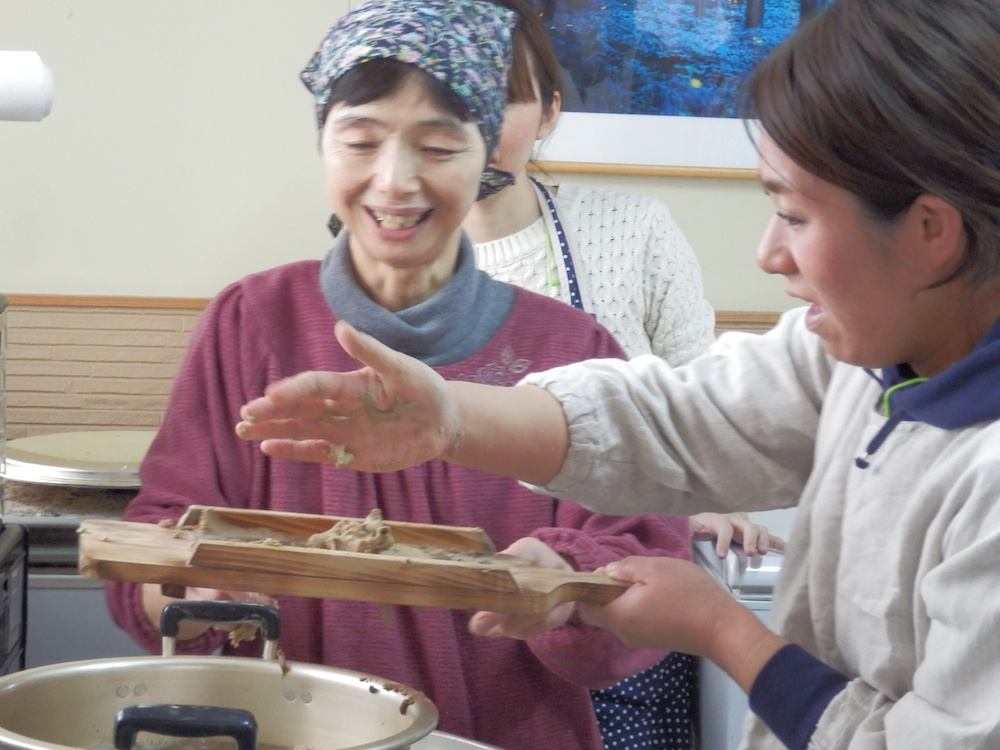
About this activity
Tsushima Speciality “Iriyaki”
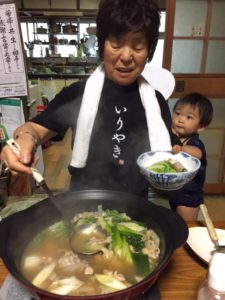
This is the one when we talk about our local cuisine! Home-made dish that is served whenever people gather since the olden time. Iriyaki is a nabe (hotpot) dish with stock extracting from chicken or seasonal fish, as well as soy sauce and sugar. Volume is big with seasonal vegetable and thick Shiitake mushroom that we are proud of.
Experience note of making Iriyaki (local chicken)
Experience note of making Iriyaki (Amberjack)
Sweet potato noodle “Rokubeh” – uniquely tender and bouncy texture that you will experience for the first time in life
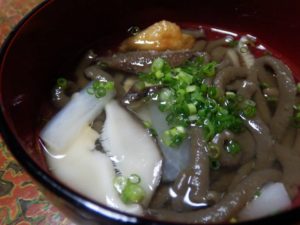
Soak “Sen” (fermented sweet potato) in water, push out through special tool like grater into noodle shape, boil them and eat with soup flavoured with fish or chicken stock. You will be addicted to its uniquely tender and bouncy texture!
The ingredient of this “Sen” is sweet potato’s starch, and its origin is “thousand troubles”. You need to quash, kneed, fitment, soak in water, filter, kneed in ball shape, dry it… it is preserved food that takes about 5 months to make. You can tell how importantly Tsushima people have been using potato.
Experience note of making Rokubeh
No mochi (rice cake)! “Tsutsu Zoni (Tofu & Veg Soup)”
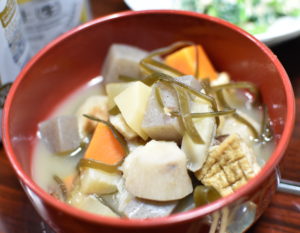
When it comes to new year, it is “Ozoni”. When it comes to Ozoni, it is Mochi (rice cake). But! Tsushima has Ozoni with no mochi! No main ingredient, you may think. But instead of mochi, “Tsutsu Zoni” has a lot of 里芋. And also Japanese raddish, carrot, burdock, こんにゃく, various beans, tofu, fish paste, etc. etc. there are many ingredients! Seasoning is only soy sauce and sake, but stock of grilled fish and extracts of many ingredients give very deep taste. It is a rare local cuisine made only at Tsutsu region in Tsushima.
Experience note of making Tsutsuzoni
Things to bring
- Cloths you don’t mind getting dirty or apron
- We will lend all cooking materials, so you don’t need to bring anything other than above. If you don’t want dirt on your cloths, please bring apron.You will have the dish as dinner. We prohibit the take away of the food for the prevention of food poisoning. Thank you for your understanding.
※If you wish to experience the program as a single person, you will be charged the fee for two people.
Cancellation
| The day before the scheduled trial date | 30% of the experience fee |
| On the day of the scheduled experience or without notice | 100% of the experience fee |
Outline
| Duration | 1 ~ 12月 |
|---|---|
| Time required | 1.5 ~ 2 hours |
| Ages | More than primary school *Infants possible only with parental guardians' accompany. |
| Price | ¥2,000/person |
Nouhaku pffering this actibity
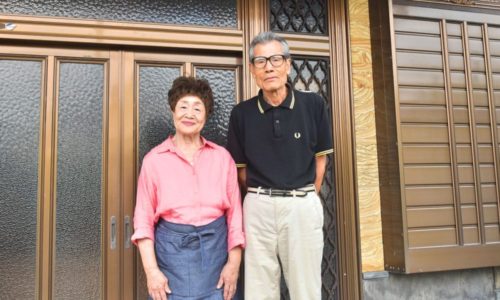
Peach and Pear Village Fruit farm Tachibana
Farmers' house that grow various fruits such as fig, peach, pear and kiwi fruits. You can experience harvesting. They are at Tsutsu - most southern area of Tsushima where tribe's traditions have been passed down to generations.
Details of this Nouhaku
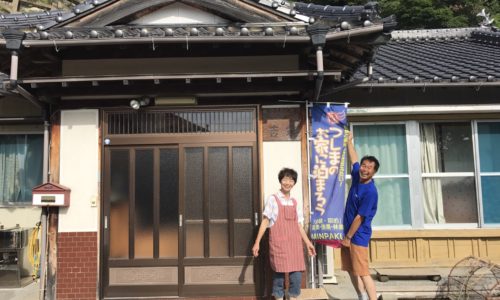
Yoshiei
Fisherman's inn located in the town of the sea! We will entertain you with a full course of fresh and seasonal seafood!
Details of this Nouhaku
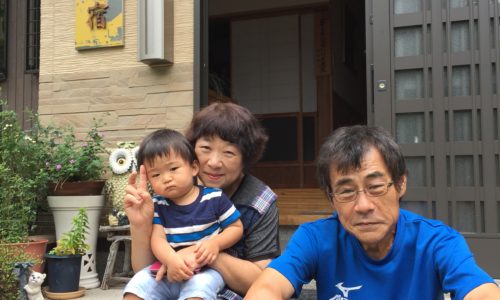
Ginnan-no-yado
We welcome you with our own fresh ingredients and loving service! Cooking experience is also popular!
Details of this Nouhaku

